The lightweight technology that underpins the new BMW i3 urban electric car, spied here during testing in Munich, has the potential to be transferred to other brands.
Now close to production form, the design of the BMW i3 has been toned down from the original concept, which was unveiled at the Frankfurt motor show last year. The i3’s sister car, the all-wheel-drive petrol-electric hybrid i8 sports car, has undergone the same process as it moves towards production.
The i3 concept shown at Frankfurt featured see-through doors, which have been replaced by a standard design on this test car. It now seems that the doors were merely for impact at the concept’s motor show appearances, and it was always BMW’s intention to fit more conventional doors.
As with the i8, the i3 is based around a light but highly resilient CFRP (carbonfibre reinforced plastic) body structure – dubbed the ‘Life Module’ – and rides on a predominantly aluminium chassis.
It is the i3’s Life Module underpinnings that could be applied to other brands – opening up the possibility for the BMW Group to use the technology on a future Mini, for example.
The i3’s construction will bring it close to the conventionally constructed Mini One in terms of stature.The production version of the i3 weighs 1270kg, some 265kg above the Mini One. At 3845mm in length, 2011mm in width and 1537mm in height, the five-door i3 is 120mm longer, 326mm wider and 132mm higher than the Mini One. It rides on a platform boasting a 105mm longer wheelbase at 2570mm and wider tracks.
Therefore the i3 has a larger footprint than its Mini stablemate, yet it’s still smaller than any existing BMW model. There is a nominal 200 litres of luggage space behind the rear seats.
BMW claims the i3 boasts a “comparatively small turning circle” and keenly describes its handling as being “agile at typical city speeds”, both in keeping with its urban driving brief. By mounting the new car’s liquid-cooled battery – a lithium-ion unit of unspecified weight and capacity – within the central section of the floor, BMW claims the i3’s centre of gravity is lower than all current 1-series models.
The i3 will be offered with standard plug-in electric or optional range extender-assisted, electric-drive powertrains when it goes on sale next year.
Unlike the petrol-electric, hybrid-powered BMW i8, the i3 relies on a pure electric driveline currently undergoing durability testing in a fleet of 1-series Active-E prototypes.
At the heart of the new plug-in system is a compact electric motor mounted over the rear axle. It draws energy from the battery to provide drive to the rear wheels via a single-speed transmission.
With 168bhp and gutsy 184lb ft of torque, the brushless motor is claimed to propel the i3 from 0-37mph in 3.9sec and from 0-62mph in 7.9sec – acceleration roughly equivalent to the 118d. It is also claimed to possess 50-75mph rolling acceleration of just 6.0sec.
Maximum speed is limited to 93mph to protect the charge of the battery. BMW claims a total recharge time of the battery pack in six hours on a conventional 220-volt mains charge. An ‘80 per cent capacity in one-hour’ fast charge is also available. A heavy-acting brake-energy recuperation system also features, as does a ‘coast mode’ that can be used for periods of energy-neutral freewheeling.

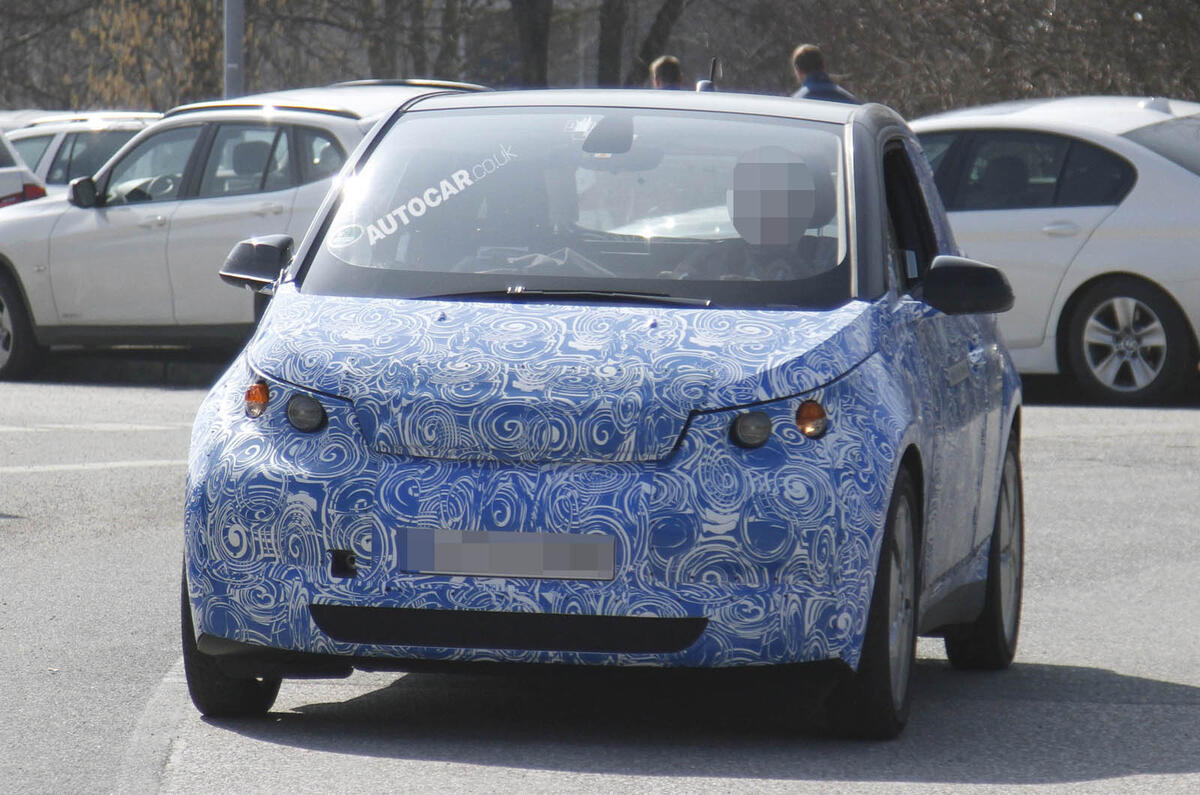
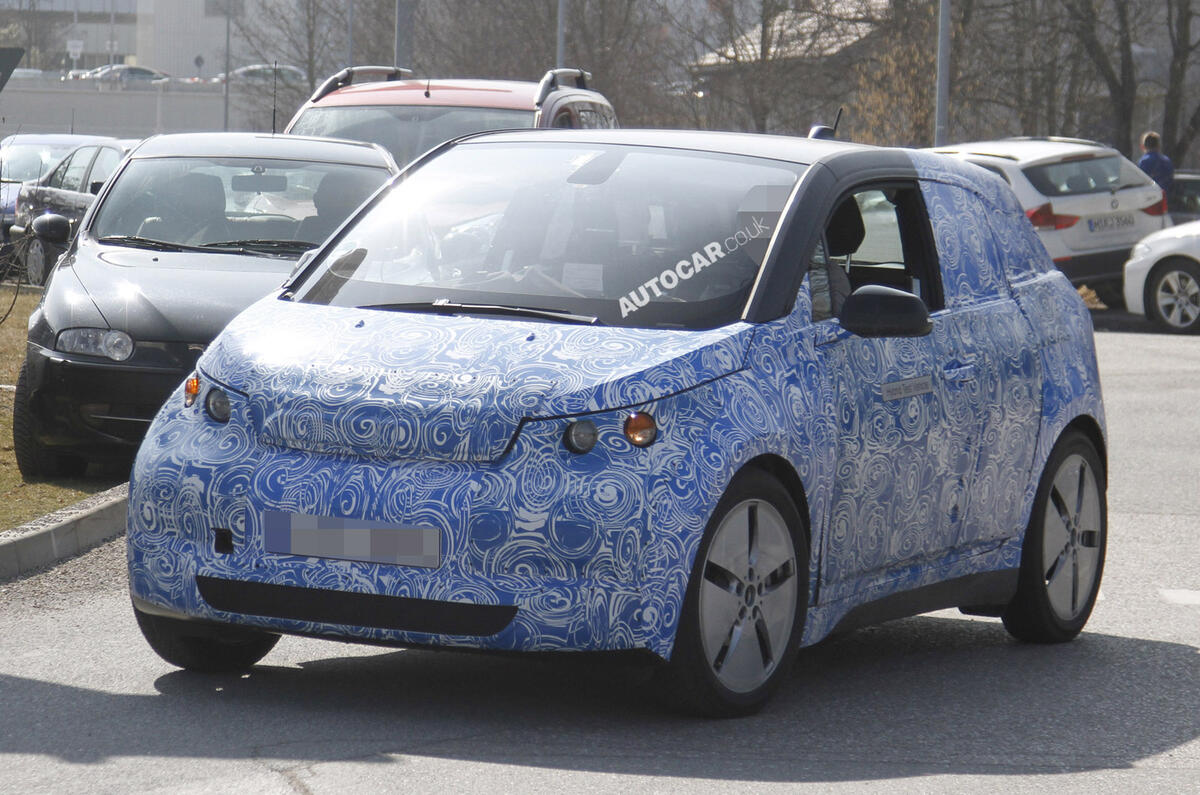
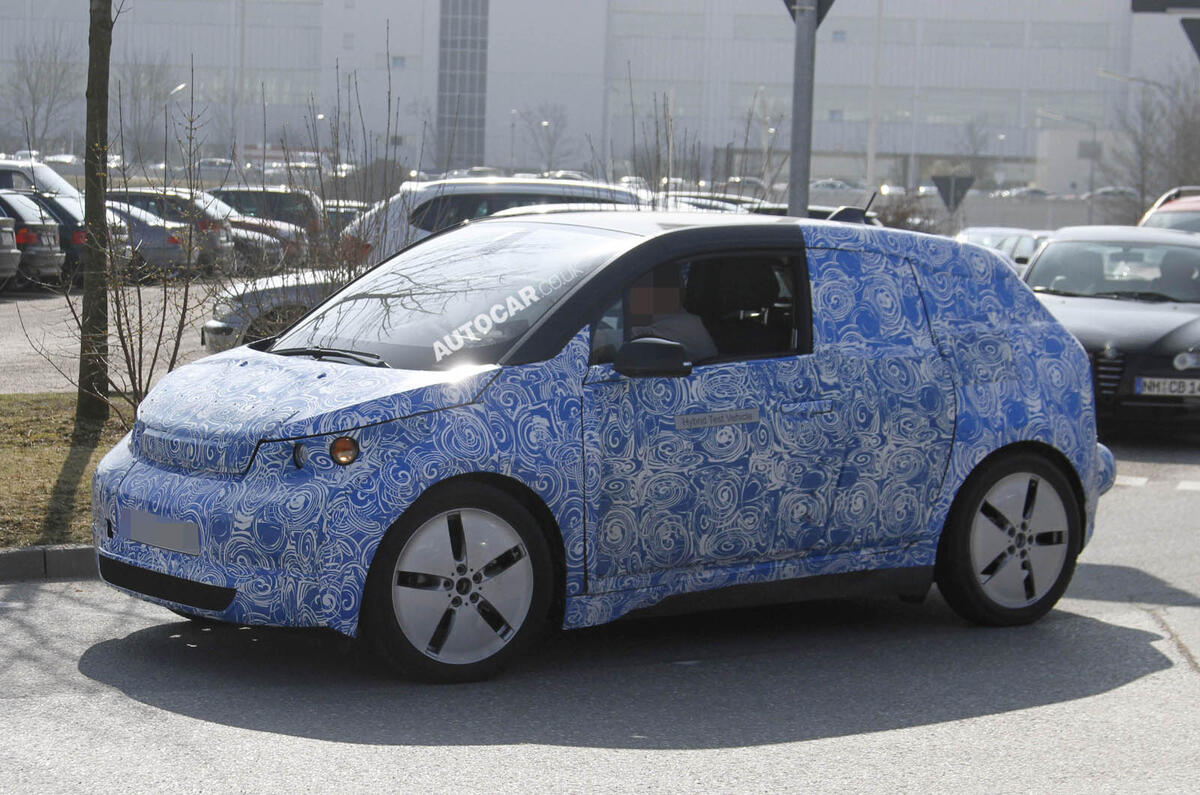
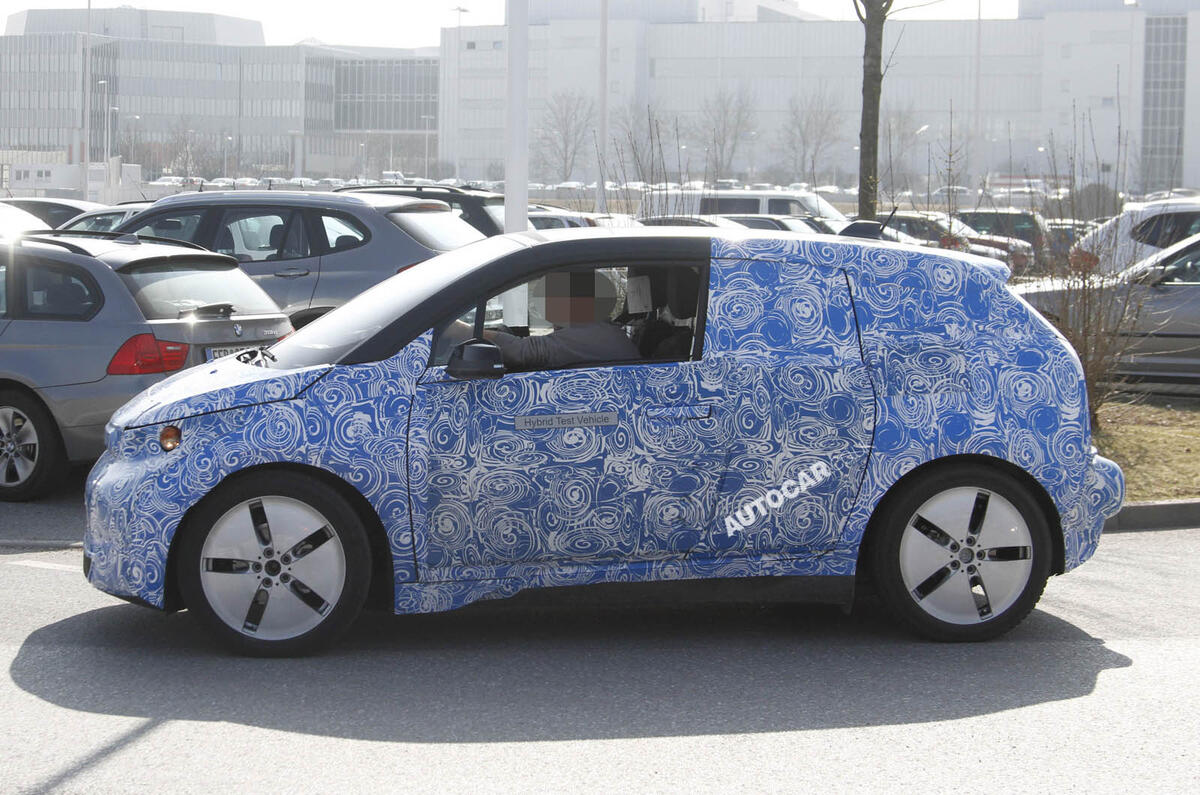
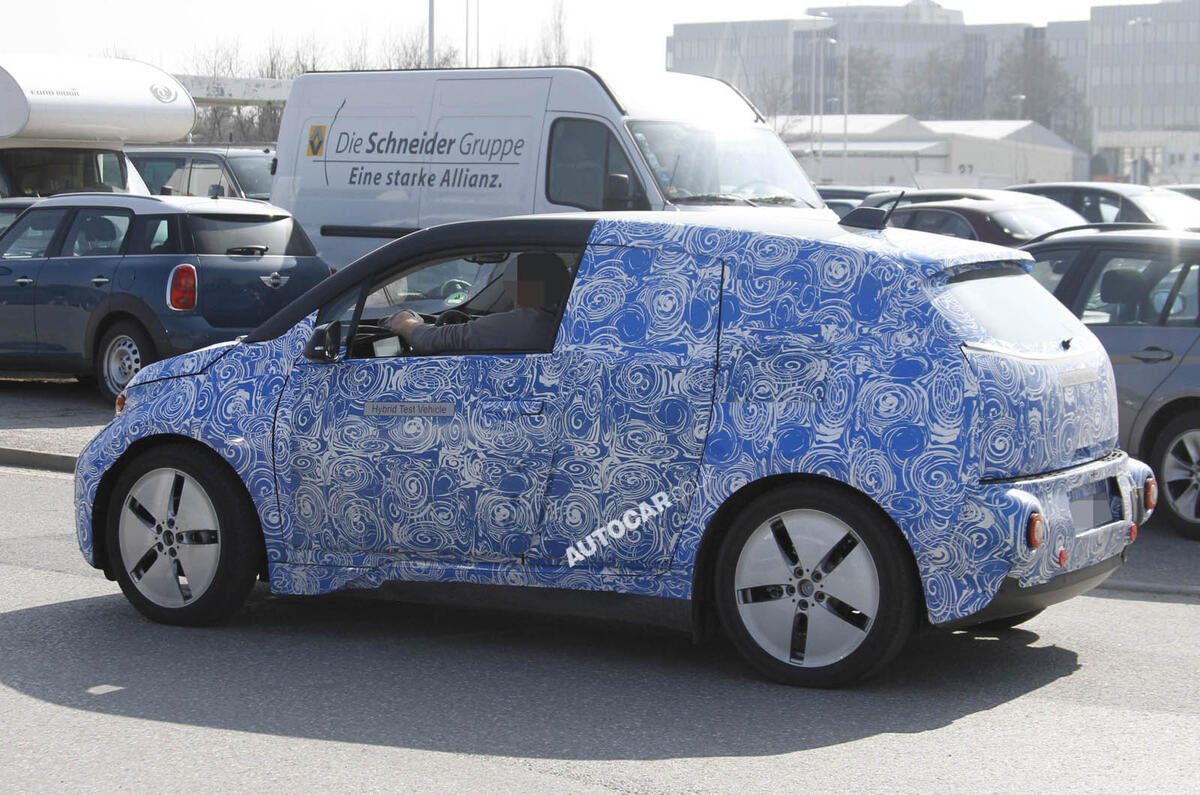
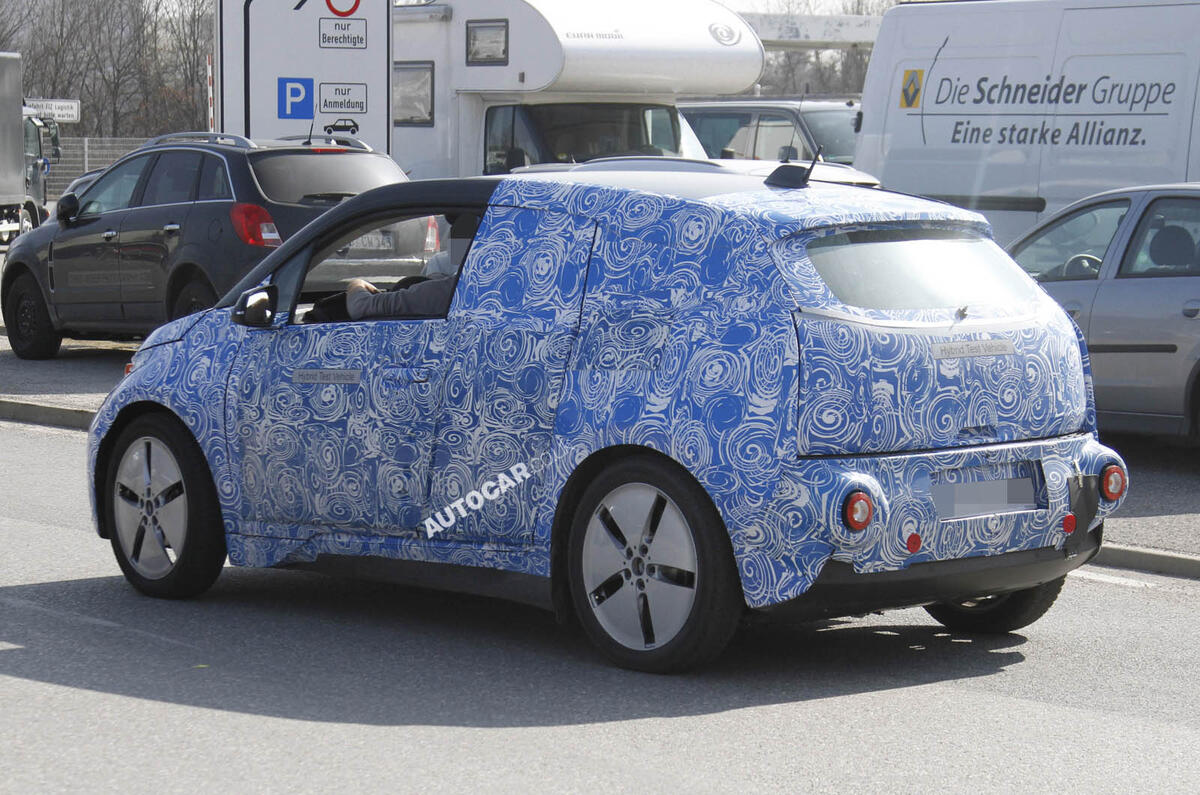
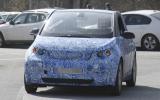


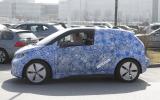




Join the debate
Add your comment
Re: BMW i3 spied testing
At nearly 1300kgs this car has a very weighty problem.
Re: BMW i3 spied testing
As the data shows this i3 is over 12 inches wider than a MINI then you can not really compare it to the T27 with its forward folding front to gain access and tandem seating just like the 1950's Messerschmitt bubble car.
Re: BMW i3 spied testing
That sounds perfect, scrap the batteries or a least only put in about 5kwh and this could be a winner for me. That is if it is not over £25k starting which seems optimistic.